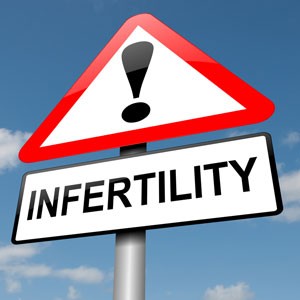As a bariatric surgeon, I see a lot of young obese women in my day to day practice. Infertility is a concern for a lot of these young women. Most of them come to us after multiple failed attempts at conceiving naturally and then by assisted fertilization. Commonly there is no objective medical cause to explain infertility in these women. The entire process is frustrating and most of the times they do not realize that obesity itself is causing a negative impact on fertility and is leading to multiple adverse reproductive outcomes. With rising levels of obesity in women of reproductive age group, as doctors we are dealing with an increasing number of patients who are battling infertility.
Obese women have a lower implantation rate, a higher miscarriage rate and increased chances of complications during pregnancy. They are also known to have a higher failure rate with assisted reproductive techniques like in vitro fertilization. They also have a lower chance of giving birth to a healthy newborn as compared to normal weight women.
The effect of obesity on reproductive health is complex. Obesity is associated with menstrual irregularity which is usually a result of anovulatory cycles. Obese women tend to be insulin resistant which in turn promotes the development of polycystic ovarian syndrome or PCOS. Increased levels of multiple hormones such as luteinizing hormone, leptin, insulin, estrone, triglycerides and very low density lipo-proteins in turn have a negative impact on the hypopituitary gonadotrophic axis which in turn leads to infertility.
Even after they conceive, obese women tend to have a higher chance of miscarriage. The exact incidence of miscarriages among obese women remains unknown. This is compounded by the fact that many times obese women tend to have irregular menses and miscarriages may go unnoticed. The other risks during pregnancy include high blood pressure, increased incidence of gestational diabetes, pre-eclampsia, infection and blood clotting (venous thrombo-embolism). Rates of still born babies are higher among obese women. Their chances of having a cesarean section are also much higher as compared to having a normal delivery.
Does the father’s weight affect a couple’s chances of conceiving?
Obesity has a negative impact on male fertility as well. Some overweight and obese men may have a poorer sperm quality than normal weight men. Obese men may also have a higher incidence of erectile dysfunction and they tend to be less interested in sex.
Solutions:
It is essential that overweight and obese women attending infertility clinics be given necessary advice about weight loss. Lifestyle modification forms the cornerstone of therapy and must be the first line of advice. Patients must be put on medically supervised diet and exercise programs. Reproductive abnormalities induced by obesity tend to improve after weight loss. Menstrual cycle tends to become more regularized and cycles become ovulatory from anovulatory.
In case of severely obese women with a BMI more than 37.5 kg/m2, bariatric surgery can be recommended for weight loss. However we advise that women who undergo bariatric surgery must wait for atleast one year before they try to conceive. One of our patients Suman Kalra a 38 year old lady had been married for ten years. At 134 kg she was battling not only with weight issues but also infertility. Multiple miscarriages and subsequent multiple attempts at assisted reproduction through IVF had taken a toll on her health. She also suffered from uncontrolled diabetes and had recently been started on medications for depression. After many failed attempts at weight loss she finally underwent a Laparoscopic Roux en Y gastric bypass in 2012. She lost 45 kgs in one year and conceived naturally after 18 months. Today she is a proud mother to a beautiful baby girl.
There are many such success stories of women who have conceived after losing weight. Preconception counselling must be mandatory and one must target to achieve normal weight, before natural or assisted conception.





